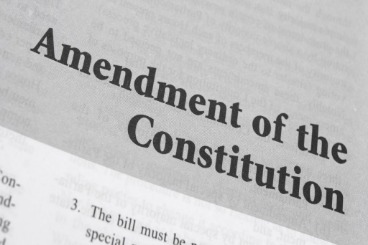
The Ninth Amendment tells us that the existence of a written structure should not be handled as an excuse for ignoring nontextual rights, nevertheless it also tells us that the advocates of these rights cannot relaxation on historic constitutional textual content to determine their existence. Instead, it’s for us, the residing, to resolve whether or not we would be higher off recognizing these rights. It has been objected additionally in opposition to a invoice of rights, that, by enumerating specific exceptions to the grant of power, it would disparage these rights which weren’t placed in that enumeration, and it would comply with by implication, that these rights which weren’t singled out, had been intended to be assigned into the hands of the overall authorities, and have been consequently insecure. This is one of the most believable arguments I even have ever heard urged in opposition to the admission of a bill of rights into this technique; but, I conceive, which may be guarded against. “No state shall make or enforce any legislation which shall abridge the privileges or immunities of citizens of the United States; nor shall any State deprive any individual of life, liberty, or property, with out due means of regulation; nor deny any individual the equal safety of the legal guidelines” .
313 Reinman v. City of Little Rock, 237 U.S. 171 (location of a livery steady within a thickly populated city “is nicely throughout the range of the power of the state to legislate for the well being and basic welfare”). See additionally Fischer v. St. Louis, 194 U.S. 361 ; Bacon v. Walker, 204 U.S. 311 . 290 This can be done regardless of whether or not the profit is to the owners of oil and gasoline in a standard reservoir or due to the public interests involved. Thompson v. Consolidated Gas Co., 300 U.S. 55, seventy six–seventy seven (citing Ohio Oil Co. v. Indiana (No. 1), 177 U.S. one hundred ninety ); Lindsley v. Natural Carbonic Gas Co., 220 U.S. 61 ; Oklahoma v. Kansas Natural Gas Co., 221 U.S. 229 .
Citizenship Rights, Equal Protection, Apportionment, Civil Struggle Debt
But speech is one factor; conduct and bodily actions are quite another. See, e.g., Cox v. State of Louisiana, 379 U.S. 536, 554—555, eighty five S.Ct. 453, 464, 13 L.Ed.second 471; Cox v. State of Louisiana, 379 U.S. 559, 563—564, 85 S.Ct.

Because they deny the possibility of discerning genuine rights unbiased of government, they require some other extra palpable touchstone for locating constitutional values, be it authentic intent or some notion of consent or both. Can there be any doubt, now that we now not consider there may be any such thing, that we’d be behaving correctly in ignoring the provisions? “89 For one who denies the existence of rights antecedent to authorities, a reference to unspecified retained rights is not any completely different from “an amendment that claims ‘Congress shall make no’ and then there may be an inkblot, and you cannot read the remainder of it, and that’s the only copy you’ve. .”90This philosophical objection lurks behind lots of the objections to judicial evaluation of the rights retained by the people91. This would reestablish a regime of restricted authorities and tremendously cut back the necessity for judicial evaluate based mostly on constitutional rights — especially unenumerated rights.
The Ninth Modification: For Us, The Living
Ontario Land Co. v. Yordy, 212 U.S. 152 . Where tax proceedings are in rem, house owners are certain to take notice thereof, and to pay taxes on their property, even when the land is assessed to unknown or different individuals. Thus, if an owner stands by and sees his property offered for delinquent taxes, he’s not thereby wrongfully disadvantaged of his property. See additionally Longyear v. Toolan, 209 U.S. 414 . 512 The obligation thereby imposed on the employer has never been viewed as depriving him of property without due process of regulation, nor has the adjustment of his system of accounting been viewed as an unreasonable regulation of the conduct of business. 511 Pierce Oil Corp. v. Hopkins, 264 U.S. 137 .
- 595 “An indigent girl who wishes an abortion suffers no drawback as a consequence of Connecticut’s choice to fund childbirth; she continues as earlier than to be depending on private sources for the services she desires.
- The Court dominated that Massachusetts could not enforce this law against married couples (due to Griswold v. Connecticut), so the legislation functioned as “irrational discrimination” by denying unmarried couples the proper to have contraceptives.
- In truth, Madison speaks here of “particular powers . . . given as much as be exercised by the Legislature.” He was most fearful of abuses within the legislative branch.
- What could be the constitutional fate of the regulation if hereafter applied to punish nothing but speech is, as I even have stated, quite one other matter.